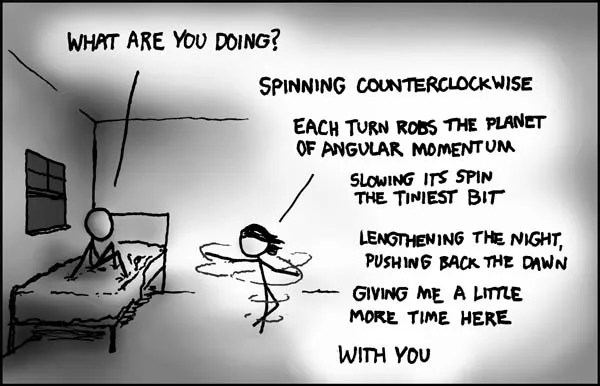Background
From biological cells to celestial bodies spontaneous synchronisation is found everywhere in the nature. In simple words, you could call “spontaneous synchronisation” as “a natural self-organisational behaviour” in things. Where, out of a chaos, uniform order starts appearing. If that feels too abstract to understand, read on…
Probably the first human to note this effect was a Dutch physicist, Huygens. Huygens noticed this when he was working on a ship with two pendulum clocks. For very long times, his work of calculating longitudes required him to watch these clocks swinging away their pendulums. He would lie on the bed and watch them go. There was one weird thing he noticed about these pendulum clocks. No matter how the pendulums started swinging, after an hour or so, both the pendulums ended up synchronized! This was a perfect example of uniform order appearing out of no where from an apparent chaos.
The effect amazed scientists for about 350 years. Only then some researchers at Georgia Tech University, were they able to produce a perfect mathematical model that proved it. So, what was happening on the boat? In a similar fashion, would all pendulum clocks in the world get spontaneously synchronized? Let’s look at the following example to find the answer.
Synchronizing metronomes
Think of it this way. You have a couple of metronomes with you – the physical ones, the ones that are based on pendulums. You start each one of them and there is almost no chance that you’d get them perfectly synchronized in the first go. So what do you do to get them synced?
You simply keep all of these metronomes (ticking with the same frequency but different phase relations) on a free-floating table. That gets them synchronized in a matter of minutes. See how the 32 metronomes completely out of sync of each other get synchronized in the following video. Note that they are on a surface that is free-floating.
Adam Milkovich explains the effect very beautifully in the following video:
Another video – Link
Back to Huygens
Now, if we come to see the boat as a free-floating base and the 2 discordant pendulum clocks as metronomes, the segue of their motion into a perfectly synchronized one, makes complete sense.
The only difference is that the boat was a pretty huge free-floating base – something which has a relatively very high mass as compared to the pendulums. And then there is the drag on water; other forces etc.. The pendulums had a very very tiny effect on the boat and in turn, were able to transfer only a teeny bit of energy with every oscillation. So it took longer.
I find it pretty incredible that it even happened in an hour. I think it would have taken a much longer time, given the huge difference in their masses. May be Huygens exaggerated. Or it was a very small boat. Anyway, that is the reason, Huygens’ clocks took about an hour to get synchronized. While the ones we see above are able to do it in a matter of minutes.
Back to the Question
Would all pendulum clocks in the world would get spontaneously synchronized?
Well, I’m not too sure. But this is how I see it:
I think of Earth as a really really really huge free-floating boat. Now, the movement of pendulums on Earth certainly has an effect on the earth. And in turn the other pendulums get affected. And they end up synchronized at some point. But the first effect itself is unimaginably small.

I mean, the Earth is so massive that even if all of the 7 billion people on Earth jumped at the same time, the 6-trillion-trillion-kilogram Earth would move so less. Earth would move about a hundredth of the radius of a single hydrogen atom.
So, pendulums would hardly have any effect. But the effect would certainly be there.
Therefore, I’d say the answer is yes. Yes, all the pendulum clocks on earth would eventually get synchronized. But it would probably take so long, that even earth, leave alone pendulum clocks, would cease existing.
Toy idea: Well, that gives me a great idea for a toy. 5 – 10 pendulums inside a huge pendulum. The inner ones would get beautifully synchronized automatically!
Hit like if you learnt something today.

